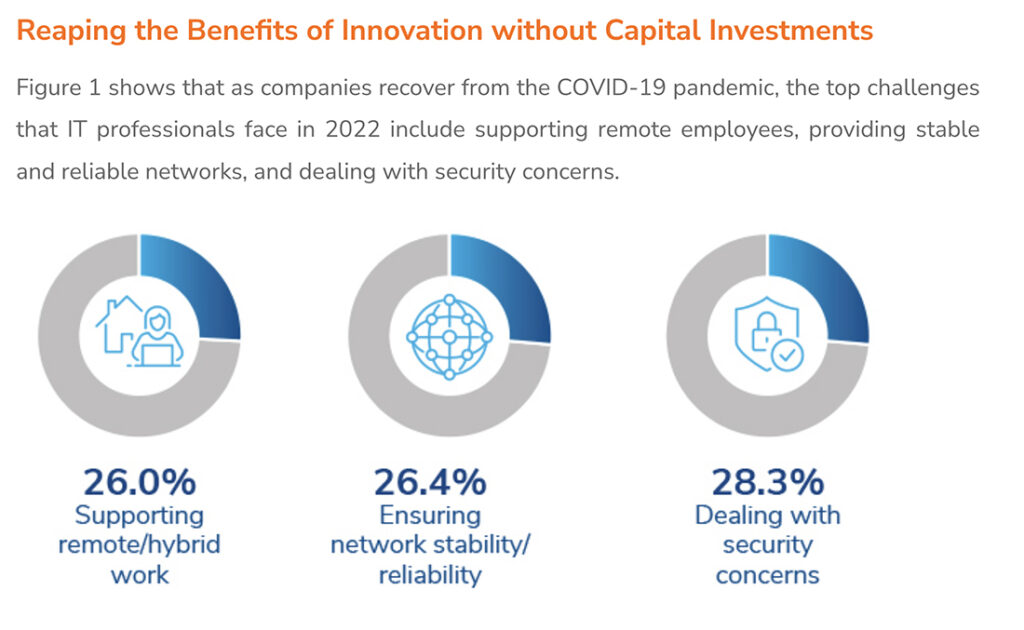Today, enterprises around the world recognize that the contact center is a key driver of business growth and are stepping up investments in artificial intelligence (AI), real-time analytics and agent support. According to Frost & Sullivan’s “2022 IT Decision-Maker Survey,” enriching customer experience (CX), improving brand equity, and promoting digital commerce are the top three objectives for leading organizations.
“To be a winner in this increasingly complex industry means being able to provide an extensive array of integrated solutions on a modern platform that takes advantage of the cloud and AI technologies,” said Frost’s Nancy Jamison, industry director, in a recent post.
She noted that the traditional contact center is evolved into a multifaceted hub of CX management that incorporates customer service, technical support, marketing and sales. In addition, most organizations offer multiple channels to support customers including voice, live chat, email, social media messaging, and self-service tools. For instance, Avaya OneCloud™ CCaaS incorporates AI-powered solutions for integrated desktops and virtual assistants, in-the-moment data retrieval, real-time reporting, and an empowered workforce.

Addressing timely issues
Moving contact centers to the cloud can provide flexibility and scalability in today’s uncertain economy and help IT leaders address other issues. For instance, advanced contact center technologies support and empower agents in both remote and on-site locations, reducing turnover and the costs associated with recruiting and hiring.
As organizations recover from the COVID-19 pandemic, the Frost survey found top challenges for IT professionals were:
• Supporting remote employees (26 percent)
• Providing stable and reliable networks (26.4 percent)
• Dealing with security concerns (28.3 percent)
Cloud-based contact centers, combined with innovative AI technologies, can help address all three issues. According to the Frost report, more than 40 percent of the companies surveyed plan to invest in solutions that allow employees to make their own or better decisions, provide scheduling preference capabilities, and improve employee training and development.
“AI infused into workforce management and training tools can deliver on these intentions to assist agents in improving their performance, which simultaneously makes their jobs easier and more rewarding,” said the report. “AI-assist technologies represent a game-changer for agent and customer retention by collecting valuable, actionable information from the self-service journey.”
Organizations are also investing in self-service tools, with 78 percent of companies surveyed expecting to support this channel by the end of 2022. Along with deploying chatbots, many enterprises are using AI to elevate their self-service tools by using CX data for ongoing learning and training.
“Smarter self‐service channels address today’s customers’ needs and allow agents to focus on complex tasks and deliver a better CX,” said the Frost report. “AI technologies have had a significant impact on the breadth and richness of contact center portfolios, helping companies reach their CX objectives, notwithstanding the growing volume of demands from customers.”
Measuring CX success
Measurements of contact center success should focus on delivering a convenient, seamless experience throughout the customer journey. After all, being able to provide an effortless experience across channels during the same interaction leads to a more positive immediate outcome and supports long-term customer loyalty.
Summing up the findings, the Frost survey shows that cloud-based solutions, enhanced by AI technologies, are vital to building customer relationships. This strategy allows companies to take advantage of the latest innovations without huge investments in on-premises technology, while supporting cyber security and avoiding the issues associated with upgrades to legacy systems. Most importantly, cloud-based contact centers can boost CX, improve revenue, support agents and deliver operational efficiencies.
